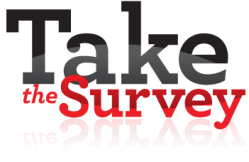Category Archives: Sunnah
The Sunnah of Straightening the Rows
In his Saheeh, Al-Bukhaari (رحمه الله) wrote many chapters regarding this matter. The first chapter:
إلزاق (Ilzaaq) means to stick.
“أقيموا” (Straighten) is an order.
The Prophet (salla Allaahu ‘alaihi wa sallam) said:
أَقِيمُوا الصُّفُوفَ وَحَاذُوا بَيْنَ الْمَنَاكِبِ وَسُدُّوا الْخَلَلَ وَلِينُوا بِأَيْدِي إِخْوَانِكُمْ وَلاَ تَذَرُوا فُرُجَاتٍ لِلشَّيْطَانِ وَمَنْ وَصَلَ صَفًّا وَصَلَهُ اللَّهُ وَمَنْ قَطَعَ صَفًّا قَطَعَهُ اللَّهُ
Set the rows in order, stand shoulder to shoulder, close the gaps, be pliant in the hands of your brethren, and do not leave openings for the devil. If anyone joins up a row, Allaah will join him up, but if anyone breaks a row, Allaah will cut him off. [Sunan Abu Dawoud]
These are all commands.
وَلِينُوا بِأَيْدِي – be pliant in the hands of your brethren
Be flexible and lenient. If your brother says go forward, go forward. If he says to come next to him, go next to him. Read the rest of this entry
Lunar Eclipse Prayer (Salatul Khusuf) as prayed by the Prophet (Salla Allaahu ‘alaihi wa sallam)
Allaah says (interpretation of the meaning):
“It is He Who made the sun a shining thing and the moon as a light and measured out for it stages that you might know the number of years and the reckoning. Allaah did not create this but in truth. He explains the Ayaat in detail for people who have knowledge.” [Yoonus 10:5]
“And from among His Signs are the night and the day, and the sun and the moon. Prostrate yourselves not to the sun” nor to the moon, but prostrate yourselves to Allaah Who created them, if you (really) worship Him” (Fussilat 41:37)
Salaat al-Khusuf is Sunnah mu’akkadah (a confirmed Sunnah) according to the consensus of the scholars. The daleel (evidence) for this is the Sunnah reported from the Messenger of Allaah (Salla Allaahu ‘alaihi wa sallam)
When the sun was eclipsed at the time of the Messenger of Allaah (Salla Allaahu ‘alaihi wa sallam) , he went out rushing nervously to the mosque, dragging his cloak behind him, and led the people in prayer. He told them that the eclipse was one of the signs of Allaah, with which Allaah makes His slaves afraid, and that it may be the cause of punishment coming upon the people. He commanded them to do that which could prevent the punishment, so he commanded them to pray when an eclipse happens, and to make du’aa’, seek His forgiveness, give charity, free slaves and do other righteous deeds so that the punishment would go away and not befall the people. So the eclipse is a reminder to people, making them afraid so that they will turn back to Allaah and pay attention to Him.
Imaam al-Bukhaari and Muslim narrated that Ibn Mas’ood al-Ansaari said: “the sun was eclipsed the day Ibraaheem the son of the Messenger of Allaah (Salla Allaahu ‘alaihi wa sallam) died, and the people said, ‘The sun is eclipsed because of the death of Ibraaheem.’ The Messenger of Allaah (Salla Allaahu ‘alaihi wa sallam) said: ‘The sun and the moon are two signs from Allaah, and they do not become eclipsed for the death or the birth of anyone. If you see that, hasten to remember Allaah and to pray.’” Read the rest of this entry
The status of Endowment – Waqf in Islam
A Waqf is an endowment of one’s original property that he has set aside whilst having the intention that its fruitions will be donated to benefit the Muslims; thereby seeking nearness to Allah. It is an ongoing charity that will benefit a person after his death.
E.g. setting aside land as a Waqf for the Muslims to bury their dead.
E.g. building a Masjid as a Waqf for the Muslims to pray in.
Original property refers to a property whose benefits may be derived while its essence remains, such as donating a building to be used as a mosque, renting a house and spending its rent on the needy, using it to print Islamic books, etc.
The benefits refer to its yield, such as crops, rent, provision of shelter, etc. that comes from the original property.
Establishing a Waqf is a highly recommended Sunnah (سنة مستحبة).
Read the rest of this entry








